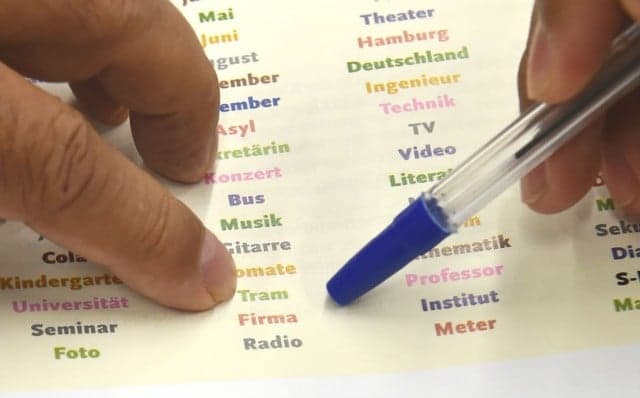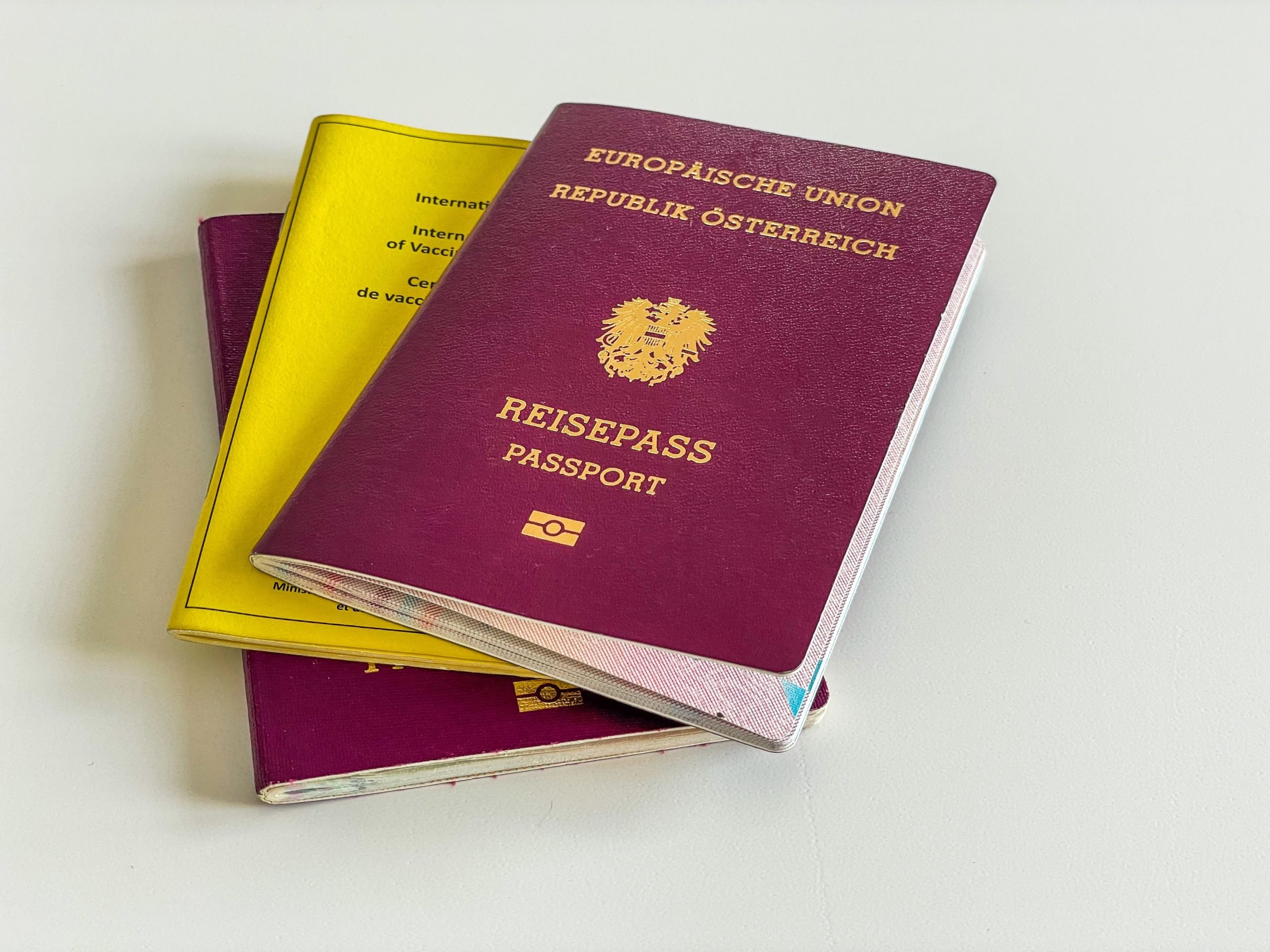A1 to C2: What are the different levels in German and how do I reach them?

The six different categories in the European Framework for Languages set out what a German learner should be able to say and do at each level of language learning. Here's what each of them mean and how you can get there.
If you've started learning German or any other European language, you have probably encountered the classifications A1, A2, B1, B2, C1 and C2. But what do they mean?
These letters and numbers refer to the Common European Framework of Reference for Languages (CEFR), an indispensable framework in language learning - and the standardised form of reference for language level used around Europe.
Whether you're applying to study or for a job, many Europeans in educational institutions and professional human resources departments will understand what the levels refer to and have certain expectations of you based on your stated level. For example, most European universities will require you to have at least a B2 level in whatever language is required to study in the appropriate program there. Some specialised programs - such as language or literature courses - may even ask for higher levels.
If you want to gauge where you currently are in your German-learning journey, we've put together a handy guide to each of the CEFR levels.
By knowing the necessary skills, vocabulary and grammar requirements required at each level, you'll have a roadmap for improving your German even further.
READ ALSO: How do I get a language study visa for Austria?
A1 - Beginner
This is the lowest level of German possible and covers those getting started. People coming to Austria to retire or reunite with family would generally need to demonstrate expertise at this level. This level may also allow you to apply for an au pair visa.
At this level, your skills should allow you to:
- Introduce yourself - ‘Hallo! Mein Name ist…’ (Hello! My name is…)
- Ask and answer simple questions about personal information - ‘Wie alt bist du? Ich bin fünfundzwanzig Jahre alt.’ (How old are you? I’m twenty-five.)
- Understand basic instructions - ‘Bitte setzen Sie sich.’ (Please have a seat)

Retirement in Austria is typically possible if applicants for the appropriate residence permit can demonstrate a basic level - A1 German. (Photo by AMA GENUSS REGION / www.schwarz-koenig.at)
Vocabulary:
You should know and be able to use basic words and phrases related to:
- Personal information - ‘Ich komme aus’ (I come from)
- Daily routines - ‘Ich arbeite von 9 bis 5’ (I work from 9 to 5)
- Family - ‘Meine Mutter heißt…’ (My mother’s name is…)
- Hobbies - ‘Ich male in meiner Freizeit’ (I paint in my free time.)
- Immediate surroundings - ‘Ich wohne in der Stadt’ (I live in the city.)
Your grammar knowledge should allow you to use:
- Personal pronouns and verbs in the present tense - ‘Ich spiele, er ist’ (I play, he is)
- Articles and noun gender - Der (masculine), die (feminine), das (neuter)
- Negation - ‘Ich bin nicht müde’ (I’m not tired), ‘Ich habe keine Katze’ (I don’t have a cat)
- Word order
- Basic preposition knowledge - ‘Das Buch ist in der Tasche’ (The book is in the bag)
READ ALSO:
- COMPARED: How to get a visa to settle in either Germany or Austria for retirement
- EXPLAINED: How does the au pair program work in Austria?
A2 - Elementary
Once you have the beginner skills down, you should be able to go just a little more, including describing daily routines, understanding basic texts, having simple conversations like discussing your weekend with a friend or expressing your opinion:
‘Ich finde, dass…’, ‘Meiner Meinung nach…’ (I think that…, in my opinion…)
At this level, you should have some vocabulary to talk about work, school, shopping, or travel.
You should also have a familiarity with grammar that will allow you to use:
- Past tense (Perfekt) of regular and common irregular verbs - ‘Ich habe Fußball gespielt’ (I have played football/I played football) or ‘Ich habe nicht gut geschlafen’ (I haven’t slept well/I didn’t sleep well)
- The dative case, including dative prepositions - Mit (with), nach (to), bei (for/by), zu (to/towards)
- Comparative and superlative forms of adjectives - ‘Er ist größer als ich’ (He is taller than me) or ‘Das Bild ist am schönsten’ (This is the most beautiful picture).
- Conjunctions - Und (and), aber (but), weil (because), wenn (when/if)
READ ALSO: 11 words to know for your Austria Meldeamt appointment
B1 - Intermediate
A German speaker at this level should be able to use their skills independently of help - even if they're not anywhere near a perfect speaker yet. They should be able to handle most aspects of daily life and manage simple topics between family and friends.
This is also the crucial German level to pass for people looking to apply either for permanent residence or standard-track citizenship in Austria. Having a certificate at this level would let you apply for permanent residence after five years in Austria and citizenship after ten years in most cases.
READ ALSO: How long does it take for your German to be good enough for Austrian citizenship?
At this level, you should have the following skills:
- Handling most situations while travelling - ‘Der Flug ist verspätet, weitere Informationen folgen’ (The flight is delayed, more information will follow)
- Expressing thoughts on familiar topics - ‘Ich gehe gerne auf Konzerte. Letzte Woche habe ich eine neue Band gesehen, aber sie war nicht so toll.’ (I like going to concerts. Last week I saw a new band, but it wasn’t great.)
- Reading and understanding simple texts
- Participating in discussions
 B1 German is the basic requirement for both Austrian citizenship and permanent residency. (© Amanda Previdelli / The Local)
B1 German is the basic requirement for both Austrian citizenship and permanent residency. (© Amanda Previdelli / The Local)
Vocabulary:
You should be able to converse on a broader range of topics, including:
- Society - Die Gesellschaft (society), die Vielfalt (diversity), die Demokratie (democracy)
- Culture - Die Bräuche (customs), die Kunst (art), die Architektur (architecture)
- News - Die Schlagzeilen (headlines), aktuelle Ereignisse (current events), die Politiknachrichten (political news)
- Abstract concepts - Der Frieden (peace), die Toleranz (tolerance), das Glück (happiness)
Your B1 grammar skills should let you express:
- Future tense (Futur I) - ‘Es wird regnen’ (It’s going to rain/it will rain)
- Genitive case and possessive pronouns - ‘Das Haus seiner Mutter’ (his mother’s house)
- Subjunctive mood (Konjunktiv I for indirect speech) - ‘Er sagte, er gehe heute Abend ins Kino’ (he says he is going to the cinema tonight)
- Complex sentence structures (subordinate clauses) - ‘Ich werde morgen früh aufstehen, weil ich einen wichtigen Termin habe.’ (I will get up early tomorrow because I have an important appointment).
READ ALSO: 'Brutal': What it's really like to learn German in Austria
B2 - Upper Intermediate
Learners at this level are starting to be able to really demonstrate their degree of German fluency, and are getting to the point where they can study or work in German - provided that more complex discussions are close to an area of expertise they have.
While most people have to have been resident in Austria for ten years to qualify for citizenship - and pass a B1 German test, you can speed this up with B2 German. If you can pass a B2 level test, you become eligible for Austrian citizenship after six years of residence in Austria, knocking four years off your waiting time.

Skills:
- Communicating coherently on various topics
- Understanding complex texts. Speakers at this level should be able to read many German-language newspapers.
- Writing detailed essays
- Following most discussions. Speakers at this level should be able to watch most TV programs.
Vocabulary:
- Extensive vocabulary covering diverse subjects and specialised areas of interest
Grammar:
- Subjunctive mood (Konjunktiv II for hypothetical situations) - ‘Wenn ich mehr Zeit hätte, würde ich ins Kino gehen’. (If i had more time, I would go to the cinema)
- Passive voice - ‘Den Schülern wird die Grammatik vom Lehrer erklärt’. (The grammar is explained to the students by the teacher.)
- Conditional sentences - ‘Wenn es regnet, werde ich einen Regenschirm mitnehmen’. (If it rains, I will take an umbrella).
READ ALSO: Essential German words to know as a student in Austria
C1 - Advanced
This level - the second-highest possible - denotes someone who speaks German fluently. A speaker at this level would be able to work in the language, attend most university courses and can have long discussions that included subjects that weren't necessarily linked to their overall interests or expertise. Their skills would also include being able to express ideas spontaneously, understanding complex books and lectures. They should also be able to engage in debate and negotiation.
 University in Austria - even specialised programs with difficult vocabulary - are possible for someone with German at a C1 level. Photo: Pixabay
University in Austria - even specialised programs with difficult vocabulary - are possible for someone with German at a C1 level. Photo: Pixabay
Their vocabulary would included advanced and specialised words for professional and academic purposes. Grammar-wise, they would be able to use nuanced sentence structure and idioms - as well as relative clauses and indirect speech.
EXPLAINED: The language requirements for studying in Austria
C2 - Mastery/Proficiency
This the highest possible level of German language skill - and one that many speakers don't ever get to. Conversations at this level stray into very academic realms. Many speakers outside of advanced academia or research posts can often already work in German with C1 rather than C2.
A C2 speaker would be able to express themselves effortlessly, understand and produce nuanced texts, engage in very precise academic or professional conversation and comprehend virtually all bits of the language. They would be able to use the language subtly, master complex sentence structure and use advanced rhetoric the way a native would.
READ ALSO: 21 phrases to help you get on in a German-speaking office in Austria
Comments (2)
See Also
If you've started learning German or any other European language, you have probably encountered the classifications A1, A2, B1, B2, C1 and C2. But what do they mean?
These letters and numbers refer to the Common European Framework of Reference for Languages (CEFR), an indispensable framework in language learning - and the standardised form of reference for language level used around Europe.
Whether you're applying to study or for a job, many Europeans in educational institutions and professional human resources departments will understand what the levels refer to and have certain expectations of you based on your stated level. For example, most European universities will require you to have at least a B2 level in whatever language is required to study in the appropriate program there. Some specialised programs - such as language or literature courses - may even ask for higher levels.
If you want to gauge where you currently are in your German-learning journey, we've put together a handy guide to each of the CEFR levels.
By knowing the necessary skills, vocabulary and grammar requirements required at each level, you'll have a roadmap for improving your German even further.
READ ALSO: How do I get a language study visa for Austria?
A1 - Beginner
This is the lowest level of German possible and covers those getting started. People coming to Austria to retire or reunite with family would generally need to demonstrate expertise at this level. This level may also allow you to apply for an au pair visa.
At this level, your skills should allow you to:
- Introduce yourself - ‘Hallo! Mein Name ist…’ (Hello! My name is…)
- Ask and answer simple questions about personal information - ‘Wie alt bist du? Ich bin fünfundzwanzig Jahre alt.’ (How old are you? I’m twenty-five.)
- Understand basic instructions - ‘Bitte setzen Sie sich.’ (Please have a seat)

Vocabulary:
You should know and be able to use basic words and phrases related to:
- Personal information - ‘Ich komme aus’ (I come from)
- Daily routines - ‘Ich arbeite von 9 bis 5’ (I work from 9 to 5)
- Family - ‘Meine Mutter heißt…’ (My mother’s name is…)
- Hobbies - ‘Ich male in meiner Freizeit’ (I paint in my free time.)
- Immediate surroundings - ‘Ich wohne in der Stadt’ (I live in the city.)
Your grammar knowledge should allow you to use:
- Personal pronouns and verbs in the present tense - ‘Ich spiele, er ist’ (I play, he is)
- Articles and noun gender - Der (masculine), die (feminine), das (neuter)
- Negation - ‘Ich bin nicht müde’ (I’m not tired), ‘Ich habe keine Katze’ (I don’t have a cat)
- Word order
- Basic preposition knowledge - ‘Das Buch ist in der Tasche’ (The book is in the bag)
- COMPARED: How to get a visa to settle in either Germany or Austria for retirement
- EXPLAINED: How does the au pair program work in Austria?
A2 - Elementary
Once you have the beginner skills down, you should be able to go just a little more, including describing daily routines, understanding basic texts, having simple conversations like discussing your weekend with a friend or expressing your opinion:
‘Ich finde, dass…’, ‘Meiner Meinung nach…’ (I think that…, in my opinion…)
At this level, you should have some vocabulary to talk about work, school, shopping, or travel.
You should also have a familiarity with grammar that will allow you to use:
- Past tense (Perfekt) of regular and common irregular verbs - ‘Ich habe Fußball gespielt’ (I have played football/I played football) or ‘Ich habe nicht gut geschlafen’ (I haven’t slept well/I didn’t sleep well)
- The dative case, including dative prepositions - Mit (with), nach (to), bei (for/by), zu (to/towards)
- Comparative and superlative forms of adjectives - ‘Er ist größer als ich’ (He is taller than me) or ‘Das Bild ist am schönsten’ (This is the most beautiful picture).
- Conjunctions - Und (and), aber (but), weil (because), wenn (when/if)
READ ALSO: 11 words to know for your Austria Meldeamt appointment
B1 - Intermediate
A German speaker at this level should be able to use their skills independently of help - even if they're not anywhere near a perfect speaker yet. They should be able to handle most aspects of daily life and manage simple topics between family and friends.
This is also the crucial German level to pass for people looking to apply either for permanent residence or standard-track citizenship in Austria. Having a certificate at this level would let you apply for permanent residence after five years in Austria and citizenship after ten years in most cases.
READ ALSO: How long does it take for your German to be good enough for Austrian citizenship?
At this level, you should have the following skills:
- Handling most situations while travelling - ‘Der Flug ist verspätet, weitere Informationen folgen’ (The flight is delayed, more information will follow)
- Expressing thoughts on familiar topics - ‘Ich gehe gerne auf Konzerte. Letzte Woche habe ich eine neue Band gesehen, aber sie war nicht so toll.’ (I like going to concerts. Last week I saw a new band, but it wasn’t great.)
- Reading and understanding simple texts
- Participating in discussions

Vocabulary:
You should be able to converse on a broader range of topics, including:
- Society - Die Gesellschaft (society), die Vielfalt (diversity), die Demokratie (democracy)
- Culture - Die Bräuche (customs), die Kunst (art), die Architektur (architecture)
- News - Die Schlagzeilen (headlines), aktuelle Ereignisse (current events), die Politiknachrichten (political news)
- Abstract concepts - Der Frieden (peace), die Toleranz (tolerance), das Glück (happiness)
Your B1 grammar skills should let you express:
- Future tense (Futur I) - ‘Es wird regnen’ (It’s going to rain/it will rain)
- Genitive case and possessive pronouns - ‘Das Haus seiner Mutter’ (his mother’s house)
- Subjunctive mood (Konjunktiv I for indirect speech) - ‘Er sagte, er gehe heute Abend ins Kino’ (he says he is going to the cinema tonight)
- Complex sentence structures (subordinate clauses) - ‘Ich werde morgen früh aufstehen, weil ich einen wichtigen Termin habe.’ (I will get up early tomorrow because I have an important appointment).
READ ALSO: 'Brutal': What it's really like to learn German in Austria
B2 - Upper Intermediate
Learners at this level are starting to be able to really demonstrate their degree of German fluency, and are getting to the point where they can study or work in German - provided that more complex discussions are close to an area of expertise they have.
While most people have to have been resident in Austria for ten years to qualify for citizenship - and pass a B1 German test, you can speed this up with B2 German. If you can pass a B2 level test, you become eligible for Austrian citizenship after six years of residence in Austria, knocking four years off your waiting time.

Skills:
- Communicating coherently on various topics
- Understanding complex texts. Speakers at this level should be able to read many German-language newspapers.
- Writing detailed essays
- Following most discussions. Speakers at this level should be able to watch most TV programs.
Vocabulary:
- Extensive vocabulary covering diverse subjects and specialised areas of interest
Grammar:
- Subjunctive mood (Konjunktiv II for hypothetical situations) - ‘Wenn ich mehr Zeit hätte, würde ich ins Kino gehen’. (If i had more time, I would go to the cinema)
- Passive voice - ‘Den Schülern wird die Grammatik vom Lehrer erklärt’. (The grammar is explained to the students by the teacher.)
- Conditional sentences - ‘Wenn es regnet, werde ich einen Regenschirm mitnehmen’. (If it rains, I will take an umbrella).
READ ALSO: Essential German words to know as a student in Austria
C1 - Advanced
This level - the second-highest possible - denotes someone who speaks German fluently. A speaker at this level would be able to work in the language, attend most university courses and can have long discussions that included subjects that weren't necessarily linked to their overall interests or expertise. Their skills would also include being able to express ideas spontaneously, understanding complex books and lectures. They should also be able to engage in debate and negotiation.

Their vocabulary would included advanced and specialised words for professional and academic purposes. Grammar-wise, they would be able to use nuanced sentence structure and idioms - as well as relative clauses and indirect speech.
EXPLAINED: The language requirements for studying in Austria
C2 - Mastery/Proficiency
This the highest possible level of German language skill - and one that many speakers don't ever get to. Conversations at this level stray into very academic realms. Many speakers outside of advanced academia or research posts can often already work in German with C1 rather than C2.
A C2 speaker would be able to express themselves effortlessly, understand and produce nuanced texts, engage in very precise academic or professional conversation and comprehend virtually all bits of the language. They would be able to use the language subtly, master complex sentence structure and use advanced rhetoric the way a native would.
READ ALSO: 21 phrases to help you get on in a German-speaking office in Austria
Join the conversation in our comments section below. Share your own views and experience and if you have a question or suggestion for our journalists then email us at [email protected].
Please keep comments civil, constructive and on topic – and make sure to read our terms of use before getting involved.
Please log in here to leave a comment.